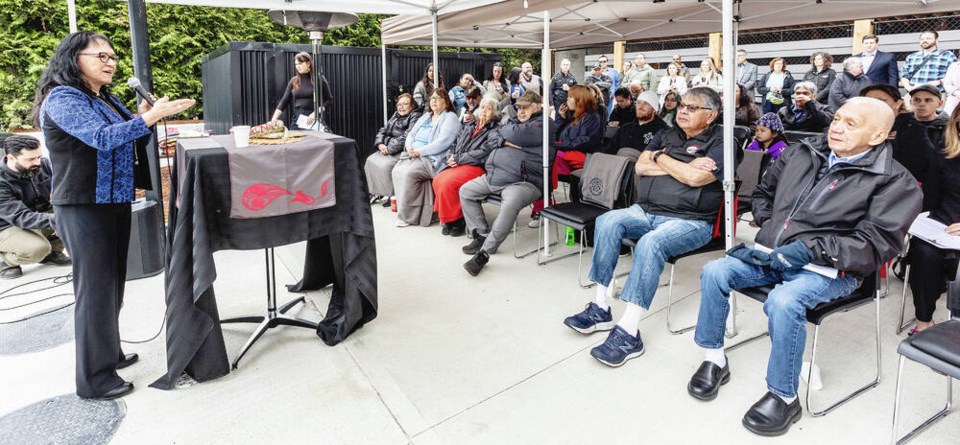I recently bumped into Fran Hunt-Jinnouchi, executive director of the Aboriginal Coalition to End Homelessness Society. She was sitting on a bench. I sat down and we chatted.
We’ve met a few times and I’ve seen her at presentations and watched her receive awards, but this was the first time we really got to know each other, and talk about life experiences and our work on a deeper level.
At least one or twice a month, I am asked in a professional setting if I know Hunt-Jinnouchi, and if I’ve worked with her. I’ve always mentioned that I know her and we’ve met, but never worked together.
Each time this happens, it’s clear that Hunt-Jinnouchi is respected in the community.
As we chatted, I casually mentioned to Hunt-Jinnouchi that I really appreciated her open praise and support for the Victoria Police Department.
I have been on the Victoria-Esquimalt Police Board for four and half years, and Hunt-Jinnouchi has talked to our board about the partnership between the coalition and VicPD.
Chief Const. Del Manak also updates the board on this partnership and highlight joint events such as officers attending hockey games, meals, and movies with family members of the coalition. (Out of respect, the term “family members” is used rather than the clinical term “clients” — the term is also used by Our Place Society.)
As an Indigenous person, I have had people question my decision to sit on a police board, although I also want to note that no Indigenous person has ever criticized me for this.
Hunt-Jinnouchi leads an Indigenous organization supporting Indigenous people experiencing homelessness. Most people would not assume an Indigenous woman in that position would be so supportive of police.
Hunt-Jinnouchi said she created this partnership with VicPD to build relationships, and to foster an environment where VicPD can spend time with coalition family members on a human level, reducing the hierarchy and allowing all parties to meet on common ground.
She was told there was distrust of police among family members, and she wanted to work to address it. When she approached Manak, she told me, he said: “If you’re in, we’re in.”
She told me a story about a hockey game where one of the family members was speaking about how excited she was that she had recently secured housing.
An offer was made to help move her items into her new home.
“It’s OK, I don’t have anything to move in,” the family member replied, still beaming with pride and excitement about finally having a home.
Hunt-Jinnouchi told me that it’s common for family members not to have items when they move into a home.
I once met a family who had been homeless and had to move hours away for a home that was available. They only had mattresses and a couple of bicycles, and they, too, were beaming with happiness and told me it was the best day of their lives.
Moments like that really help to put things in perspective.
Later in the evening, after the hockey game, Hunt-Jinnouchi received a message from a VicPD officer saying he couldn’t stop thinking about the family member not having any items to move into her home, and that even without any items, she was so excited and appreciative to have the home.
He went out and bought household items for her, including a new set of pots and pans and cooking items.
The next day, he delivered them to the family member.
I heard the story in passing at VicPD over a year ago, and was never told who it was, since the person didn’t want recognition.
In my chat with Hunt-Jinnouchi on a bench in a hotel lobby, she told me it was Colin Watson. At the time, Watson was a deputy chief at VicPD. He recently started a new job as chief constable of the Abbotsford Police Department.
I messaged Watson saying I wanted to tell this story in my column. Again, he said he wasn’t looking for recognition. While he wasn’t discouraging me from writing it, he clearly wasn’t encouraging me, either.
I share this story not to give Watson a pat on the back, but to offer a glimpse into the human beings behind the badge that we don’t always get to see.
Not all stories about police and Indigenous people have this outcome. I am not trying to diminish people’s experiences.
What I want to do is share someone’s experience that you wouldn’t have heard about otherwise.
And also, to let the residents of Abbotsford know that their new chief constable is one of the good ones.
Charla Huber is an Indigenous communications consultant based in the capital region. Her family is from Beausoleil First Nation and Fort Chipewyan.



